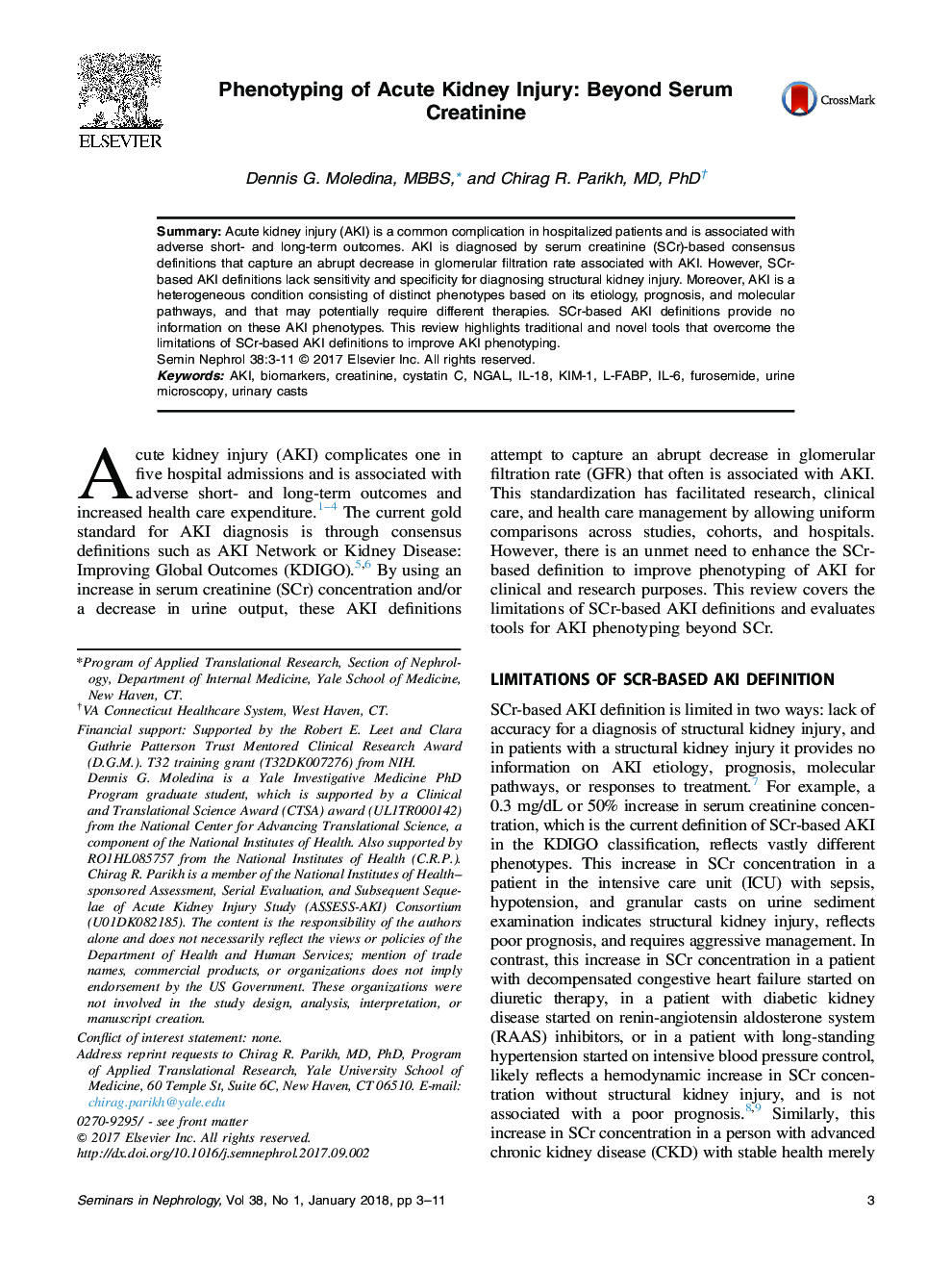| Article ID | Journal | Published Year | Pages | File Type |
|---|---|---|---|---|
| 8775203 | Seminars in Nephrology | 2018 | 9 Pages |
Abstract
Summary: Acute kidney injury (AKI) is a common complication in hospitalized patients and is associated with adverse short- and long-term outcomes. AKI is diagnosed by serum creatinine (SCr)-based consensus definitions that capture an abrupt decrease in glomerular filtration rate associated with AKI. However, SCr-based AKI definitions lack sensitivity and specificity for diagnosing structural kidney injury. Moreover, AKI is a heterogeneous condition consisting of distinct phenotypes based on its etiology, prognosis, and molecular pathways, and that may potentially require different therapies. SCr-based AKI definitions provide no information on these AKI phenotypes. This review highlights traditional and novel tools that overcome the limitations of SCr-based AKI definitions to improve AKI phenotyping.
Related Topics
Health Sciences
Medicine and Dentistry
Nephrology
Authors
Dennis G. MBBS, Chirag R. MD, PhD,
